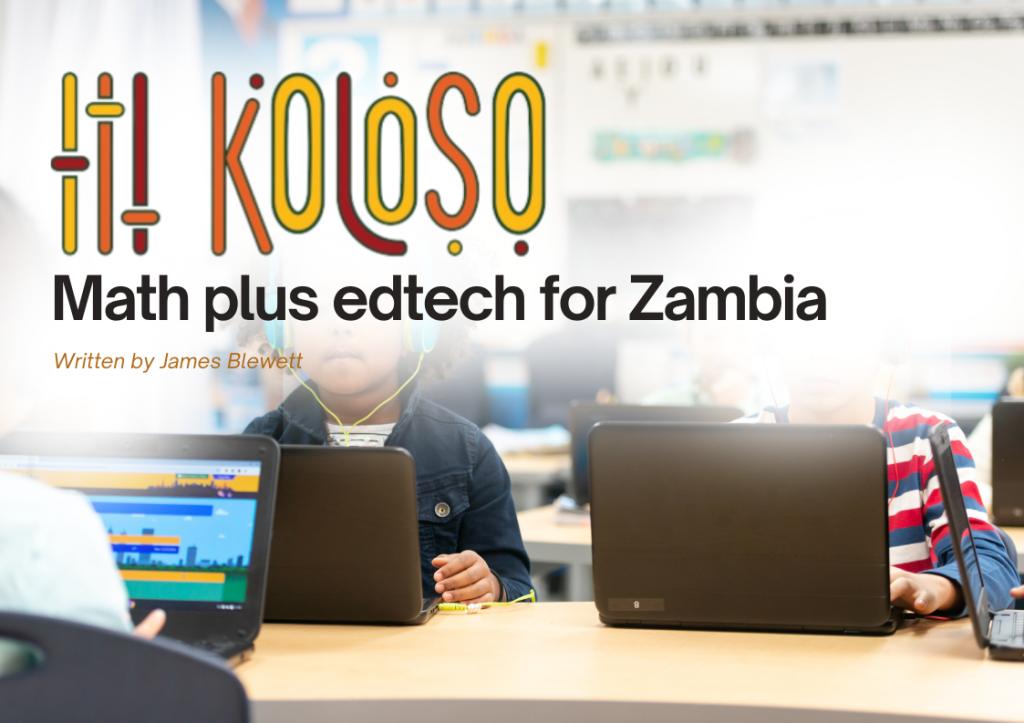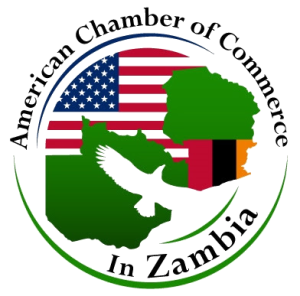
Every parent wants their child to do their best at school – but inevitably, for the vast majority of school students things don’t always go as smoothly as we would like, and waiting for future-defining exam results can be an anxious time for all concerned.
Cue Zambian edtech startup Koloso. Lead company founder, and former girls’ education and anti-child marriage activist, Petra Chikasa, explains how the product helps students to prepare effectively for exams, increasing their chances of success, “If we can spot learning gaps quickly and understand exactly where issues lie, we can do something about them. Parents, teachers, and students can all work together to help every child – girls and boys – achieve their full potential.”
“And this,” she says, “is why we created Koloso. Our app is a digital learning assessment tool that allows schools to understand in real-time exactly how well each child is progressing toward their personal learning targets. We just launched with the Zambian and Cambridge math syllabus, but starting in 2025, we plan to expand to other school subjects – starting with literacy and STEM – and across the region, and eventually, the continent. We have a long way to go, but Koloso is part of the home-grown, low-cost, easy-to-use, tech-enabled change that African education systems need to face future challenges.”
Koloso uses a simple, daily two-minute, ten-question quiz format to assess learning. Questions are automatically matched to the school curriculum, the class teaching plan, and the child’s grade. “The idea is simple”, says Petra, “if your daughter is in grade 5 at a school using the Cambridge curriculum and the teacher is covering geometry in class this week, she will get questions about right angle triangles, or be asked to calculate the perimeter of a rectangle. Tackling Koloso questions reinforces her learning, allows her to build familiarity with timed questions, and very importantly, her answers indicate whether or not she has really mastered the topics that we know will come up in the exam.”
Koloso draws on its own database of 50,000+ curriculum-aligned math questions to automatically create a unique and personalized high-frequency quiz every time a child plays the game. The results data are analyzed and presented back to the student themselves, their class teacher, and their parents so that everyone has the information they need to encourage achievement, identify learning gaps, target instruction, and motivate study.
Petra lists the benefits that Koloso can deliver, “For teachers, it means the end to setting and marking manual assessments, saving a lot of time and effort that they tell us they would prefer to spend teaching. Day by day, teachers at Koloso schools are already able to see who is progressing and who is struggling and can form groups within the class to target instruction accordingly. A continuously updated class overview means nobody can be unintentionally left behind.
“For parents, it means that you can see exactly how things are going at school, allowing you to provide or access any additional help that may be needed from time to time. You can help out with homework, or raise any lingering concerns with the school, knowing that you have the latest performance data to hand. Or if you conclude that some extra tutoring might help, you can give clear guidance as to exactly where you want the tutor to concentrate their efforts, and then monitor improvement.
“And for students, Koloso’s gamified approach is a motivating and engaging way to both check on progress and practice newly acquired skills or knowledge. Teachers and students can create leagues and competitions, with medals and prizes for achievement, and we encourage children to congratulate their classmates on their progress. It is a game with serious educational purpose and a safe, social dimension.”
And the cost of all of this? “We are an impact-driven, social enterprise,” says Petra, “We run on a for-profit, commercial basis, but we were determined to make Koloso as affordable as possible. We settled on the local currency equivalent of $1 per child per term for a school subscription, meaning that in Zambia, just K25 each term helps your child to do their best. This is a fraction of the cost of some of the products on the market – people sometimes tell us we should charge more, but we think that this is the right price point for our entry-level product.”
According to Petra, Koloso is deliberately designed to use digital assessment to encourage real-world learning. “Two minutes and ten questions per day is enough to generate the learning data everyone needs without children spending too much time staring at a screen or getting frustrated with a particular question. The challenge is to read the question, work the answer out in your head, select the right multiple-choice option, and move on – all in 12 seconds or less!”
She continues, “And this is one way in which Koloso is different from many ed-tech products, we don’t want to maximize screen time or displace teachers – in fact we want the opposite. This is why we chose the two-minute quiz format, and why we took the strategic decision to focus on assessment that supports teacher-led, face-to-face targeted instruction. And then the Koloso Festival of Numbers is all about getting children to balance digital with the real world. We ran a pilot last year, and thanks to sponsorship from Zambeef, a full-scale version just a few weeks ago. We had teams from schools across Lusaka competing for a trophy through a combination of Koloso Challenge math competitions and fun sports. It was a fantastic day out, and everyone went home happy!”
Named after space visionary Edward Nkoloso, the company was founded in Zambia in late 2022. Since then the team has been working on designing and developing their mobile app. After moving from concept to prototype, testing, and refining, demonstrating changes and testing again, working with BongoHive and more recently with Atom CTO, Koloso has reached commercial launch – “Thanks,” Petra explains, “in no small part to the support of angel investors from the Zambian Business Angels Network, and a matching grant we got from Catalytic Africa. We are so grateful for this vital financing that allowed us to get things moving.”
Testing with a small number of schools, particularly with early-adopter LICS, validated the basic Koloso concept, and gave the team a chance to see an early version of the product working in real life. It also meant going back to the drawing board with some features, and eventually, an improved game design and a new results dashboard for teachers and the school principal emerged. And now, one year on, LICS is one of the very first schools to subscribe to Koloso – a significant endorsement of the educational value of the product.
Koloso is committed to an evidence-based approach to product design and development and has just been announced as one of the ten host project winners in the 2024 global Jacobs Foundation and MIT Solve LEAP Challenge. This means that a research team under MIT will work with Koloso over a period of 12 weeks to test and strengthen the evidence base for future product development.
“Being a LEAP winner is a significant recognition of the effort Koloso is making to follow the evidence of what really works in ed-tech and an incredible boost for our product’s credibility”, says Petra, “We feel immensely privileged to be working with a university with such an amazing global reputation, and with some of the most innovative and forward-thinking members of the worldwide academic ed-tech community.”
The Koloso founding team; Petra Chikasa, who is the majority shareholder, and co-founders James Blewett and Sowi Munsaka are all deeply committed to helping to ease access to quality education for all Zambian school children and improving academic attainment throughout the country and beyond. This vision was recently rewarded when Petra and Sowi were announced as one of the winning founder teams in the Standard Chartered Women in Tech competition – landing prize money of US$10,000, which has now been invested in building a web app version of Koloso.
Petra wraps things up neatly, “Teaching and learning are complex, and Koloso is not a silver bullet. However, we are convinced that having real-time, reliable learning data will help everyone – teachers, parents, and the students themselves – to focus their attention when and where it is most needed, acquiring the essential skills that we all need to pass exams and succeed in life, and that Zambia needs to face the future with confidence”.
